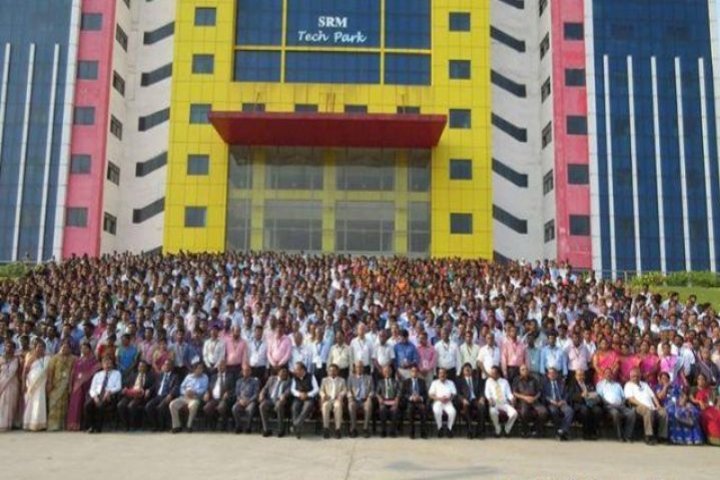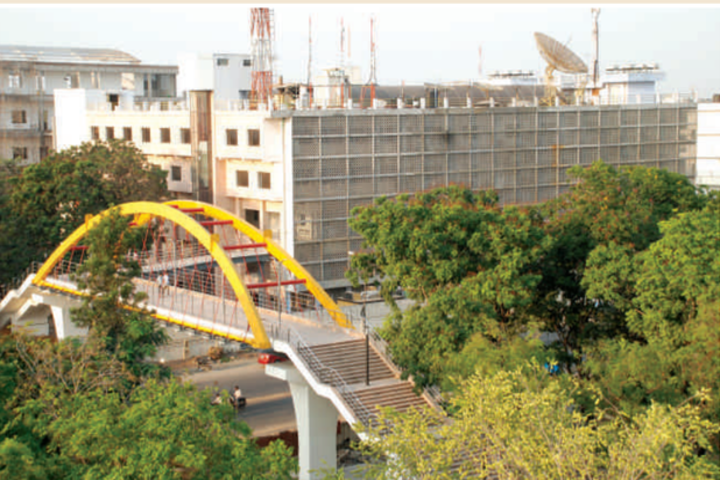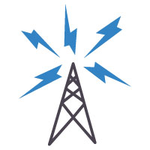
Electrical and Electronics Engineering Course Details - Fees, Subjects, Syllabus, Duration, Eligibility, Career Scope
Degrees offered: B.E /B.Tech, Diploma, Ph.D, M.E /M.Tech., M.Sc.
What is Electrical and Electronics Engineering
Electrical and Electronics Engineering is an integrated branch of engineering. This course deals with the technological aspects of electricity, especially the design and application of circuitry and electronic equipment. It also includes the concept of power generation and distribution, communication, and machine control.
This engineering branch focuses on the practical application of electricity. It also specialises in the design, construction, and uses of electrical systems in our lives. Electrical and electronics engineering is offered in various professional courses such as Diploma, B.Tech, B.E, and M.Tech.
Electrical and Electronics Engineering incorporates fundamental knowledge in core disciplines such as control systems, communications, signal processing, microprocessors, radio frequency design, electric machines, and power generation. In this course, students are taught about everything ranging from semiconductors, analog electronics, and power systems to big transmission lines, digital electronics, electrical machines (AC and DC), and control systems.
Graduates are offered job opportunities in companies like Wipro Lighting Corporate, Schneider Electric, and Bharat Heavy Electrical Ltd. Some of the common job profiles are Quality Control Engineer, Electronics Engineer, System Design Engineer, and Field Engineer.
Highlights- Electrical and Electronics Engineering
| Particulars | Values |
|---|---|
Branch Name | Electrical and Electronics Engineering |
Degree | B.E/B.Tech and M.E/M.Tech |
Duration | UG: 4 years PG: 2 years |
Eligibility | UG: 10+2 (PCM) PG: Bachelor’s degree in the same field |
Admission Process | Admission Examination/ Direct Admission |
Entrance Exam | UG: JEE Main, JEE Advanced, TS EAMCET, AP EAMCET, KEAM PG: GATE, CEETA-PG, AP PGECET |
Course Fees | Rs. 27,250 to Rs. 3.65 Lakhs |
Job profiles | Quality Control Engineer, Electronics Engineer, System Design Engineer, and Field Engineer |
Average Salary | Rs. 5.5 LPA |
Recruiting Companies | Wipro Lighting Corporate, Schneider Electric, Bharat Heavy Electrical Ltd., Havells India Limited, ABB India Limited, Tata Electric Companies |
Specialisation or Similar Ones
Electrical and Electronics Engineering offers several specialisations that allow professionals to focus on specific areas of interest within the field. Some common specialisations in Electrical and Electronics Engineering include:
Power Systems Engineering | |
Signal Processing | |
Renewable Energy Engineering |
Top Electrical and Electronics Engineering Colleges in India
More than 2800 institutes provide Electrical and Electronics engineering courses at both undergraduate and postgraduate levels. The fee for the course will be based on the level of education and the type of institute. Mentioned below are the top colleges in India offering Electrical and Electronics engineering courses.
| Colleges | Fee Structures |
|---|---|
Rs. 11 Lakhs | |
- | |
Rs. 5.50 Lakhs | |
Rs. 5.47 Lakhs | |
Rs. 8.54 Lakhs | |
Rs. 7.81 Lakhs | |
- | |
Rs. 5.72 Lakhs | |
- | |
Rs. 6.92 Lakhs |
Top Private Electrical and Electronics Engineering Colleges in India
Around 2500 Private educational institutions in India offer Electrical and Electronics Engineering at both undergraduate and postgraduate levels. The tuition fees at these private universities are generally higher compared to public universities. In the following, we will discuss some of the top private universities and colleges for Electrical and Electronics Engineering, along with their respective tuition fees.
| Colleges | Fee Structure |
|---|---|
Rs. 16.81 Lakhs | |
Rs. 4.01 Lakhs | |
- | |
Rs. 3.86 Lakhs | |
- | |
Rs. 12.46 Lakhs | |
Rs. 7.35 Lakhs | |
- | |
Rs. 4.80 Lakhs | |
- |
Top Government Electrical and Electronics Engineering Colleges in India
Pursuing a degree at a government engineering college is typically more economical than attending a private institution. These colleges are renowned throughout India for their stringent academic standards. Below are some of the premier government colleges that provide Electrical and Electronics Engineering courses, along with the corresponding fees:
| Colleges | Fee Structure |
|---|---|
Rs. 5.50 Lakhs | |
NIT Warangal | Rs. 5.74 Lakhs |
IIT Guwahati | Rs.8.54 Lakhs |
DTU Delhi | Rs. 7.81 Lakhs |
NIT Surathkal | Rs. 5.71 Lakhs |
Rs. 5.62 Lakhs | |
Rs. 6.18 Lakhs | |
Rs. 10.46 Lakhs | |
Rs. 41.20 Lakhs | |
- |
Eligibility Criteria (UG & PG) of Electrical and Electronics Engineering
Candidates are encouraged to thoroughly understand the eligibility criteria, which can vary based on the institution and level of education. It is recommended to review the eligibility criteria before applying for admission. Detailed below are the general eligibility criteria for Electrical and Electronics Engineering.
Eligibility Criteria for UG Courses
To pursue an Electrical and Electronics Engineering course at the undergraduate level in India, students should meet the following eligibility criteria:
Candidates must have cleared their 10+2 with Physics, Chemistry, and Maths.
They must score at least 50 per cent marks in the qualifying examination, which is required for admissions.
Students must also appear for relevant entrance exams such as JEE Mains and JEE Advanced to secure their admission to their desired institute.
Top Entrance Exams for UG Courses
Candidates who wish to pursue Electrical and Electronics Engineering at an undergraduate level must appear for certain relevant examinations. They must clear the cutoff of the following examinations to get admitted to their college of choice.
| Exam Name | Level | Conducting Body | Exam Schedule |
|---|---|---|---|
National | NTA | ||
National | IIT Bombay | ||
National | JNTU Hyderabad | ||
National | JNTU, Kakinada | ||
National | Office of the Commissioner for Entrance Examinations |
Eligibility Criteria for PG Courses
Students are advised to check the Electrical and Electronics Engineering syllabus of the desired institute, available on the official website of the desired institute. They are advised to meet the eligibility criteria before applying for admission. Mentioned below are the eligibility criteria for postgraduate courses.
Students must clear their Bachelor’s degree in the same field with a valid aggregate score as specified by the desired institute.
They are also advised to read the course details before applying for admission.
The GATE entrance examination is a popular engineering entrance examination at the postgraduate level that grants admission to top engineering colleges in India.
Top Entrance Exams for PG Courses
Students who wish to pursue their post-graduate studies after completion of undergraduate in the same field must clear certain high-level examinations. Candidates who clear the required cutoff are admitted to the college of their choice.
| Exam Name | Level | Conducting Body | Exam Schedule |
|---|---|---|---|
National | GATE Committee | ||
State | Anna University | - | |
National | Sri Venkateswara University, Tirupati | - |
College Predictors VIEW ALL
Scope of Electrical and Electronics Engineering in India and Abroad
Electrical and Electronics Engineering (EEE) offers a promising scope both in India and abroad due to the increasing demand for advanced technology and infrastructure development. Graduates develop and design new innovations and technologies and also find ways to improve the existing ones. Several MNCs and research organisations are investing in India which is creating more jobs.
E.E.E. works in large-scale production companies such as manufacturing, IT industry, telecommunications, and aerospace. Their opportunities are not just limited to private industries, government sectors also provide plenty of jobs for electrical and electronics engineers. With the increasing demand for electrical and electronics engineers, the threshold of skills has also increased
With a wide range of job options in numerous industries, Electrical & Electronics Engineering provides a promising future in India and outside. The industry is especially dynamic in India because of the nation's expanding economy, which is driving up demand for infrastructure expansion and technology adoption.
Electrical engineers have many chances in India's power industry because of the country's need for dependable and effective power distribution, transmission, and generation systems. Engineers can now find employment on wind, solar, and other renewable energy projects due to the fast expanding renewable energy market.
Course Fees Electrical and Electronics Engineering
| Minimum Fees | Maximum Fees | |||
|---|---|---|---|---|
| Private | Government | Private | Government | |
| UG | ||||
| PG | ||||
| DOCTORAL | ||||
| DIPLOMA | ||||
Course Subjects
The academic curriculum of Electrical and Electronics Engineering provides a holistic perspective to students. The syllabus of Electrical and Electronics Engineering varies by institute. A basic framework of the syllabus is given below:
Electrical and Electronics Engineering Syllabus for UG Courses
The syllabus for Electrical and Electronics Engineering at the undergraduate level depends on the institute. Some of the subjects offered are Problem Solving and Algorithmic Thinking, Engineering Graphics, and Multivariable Calculus. Mentioned in the table below is the syllabus of Amrita Vishwa Vidyapeetham, Coimbatore.
Semester 1 | |
Technical Communication | Single Variable Calculus |
Ordinary Differential Equation | Matrix Algebra |
Problem-Solving and Algorithmic Thinking | Engineering Physics – A/ Engineering Chemistry – B |
Engineering Physics Lab – A / Engineering Chemistry Lab – B | Manufacturing Practice |
Engineering Graphics – CAD | Cultural Education – I |
Semester 2 | |
Multivariable Calculus | Laplace Transform |
Engineering Physics – A/ Engineering Chemistry – B | Engineering Physics Lab – A / Engineering Chemistry Lab – B |
Computer Programming | Electrical Engineering Practice |
Electric Circuits | Electronic Circuits |
Cultural Education – II | |
Semester 3 | |
Fourier Transforms and Complex Analysis | Fundamentals of Mechanical Engineering |
Material Science for Electrical Engineering | Analog Integrated Circuits |
Electrical Measurements | Digital Systems |
Electromagnetic Theory | - |
Semester 4 | |
Probability and Statistics | Electrical Machines I |
Signals and Systems | Electrical Energy Systems I |
Control Systems | Soft Skills I |
Semester 5 | |
Electrical Energy Systems II | Power Electronics |
Digital Signal Processing | Electrical Machines II |
Soft Skills II | - |
Semester 6 | |
Electric Drives and Control | Microcontrollers and Applications |
Optimization Techniques | Introduction to Python programming |
Software-based Solutions for Electrical Engineering | Open Lab |
Soft Skills III | Indian Constitution |
Semester 7 | |
Power System Protection and Switchgear | Environmental Science |
Disaster Management | Project Phase I |
Semester 8 | |
Project Phase II | |
Electrical and Electronics Engineering Syllabus for PG Courses
The syllabus of Electrical and Electronics Engineering at the postgraduate level includes subjects such as Advanced Microprocessors and their Applications, Power Quality and Facts Devices, and Digital Signal Processing. Mentioned in the table below is the syllabus of AKTU Lucknow.
Semester 1 | |
Advanced Microprocessor Its Applications | Power Convertors |
Departmental Elective- I | Departmental Elective- II |
Research Process and Methodology | Microprocessor and Microcontroller Lab |
Power Converter Lab | |
Semester 2 | |
Advanced Digital Signal Processing | Power Quality and Facts Devices |
Departmental Elective- III | Departmental Elective- IV |
Digital Signal Processing Lab | - |
Seminar- I | - |
Semester 3 | |
Seminar- II | Dissertation |
Semester 4 | |
Dissertation ( Final) | |
Careers in Electrical and Electronics Engineering
The career opportunities for electrical and electronics engineers are very broad; as electrical and electronics engineers design electric circuits and equipment. They also work in software companies which comprise designing, manufacturing, and operating various devices. The career scope in this field at both national and international levels is excellent.
Major companies are recruiting skilled and capable E.E. engineers to accelerate their growth. To be successful in this field, graduates should also acquire practical knowledge in lab sessions and practicals. Graduates can also doctorate after completion of M.Tech in Electrical and Electronics Engineering.
Quality Control Engineer: Quality Control Engineers are professionals who are responsible for designing and overseeing the production of various types of complex systems and equipment.
Electronics Engineer: An electronics engineer designs and creates everyday devices such as mobile, phones and computers.
Test Engineer: Test Engineers are responsible for planning, designing, and evaluating products, as well as collaborating with the production department.
Lecturer: In the field of Electrical and Electronics Engineering, a lecturer's duties include leading students in their academic and project work, doing research, and teaching undergraduate and graduate courses.
Electrical Engineer: Electrical Engineers use their experience to innovate and resolve technological problems in a variety of industries, such as electronics, manufacturing, telecommunications, and power generation.
Upcoming trends
Electrical and Electronics Engineering is a dynamic field witnessing rapid advancements. Key trends such as the Internet of Things, Smart Grids, wireless power transfer, and wearable technology are revolutionising the industry. These fields offer exciting opportunities for innovation and growth.
- Internet of Things
- Artificial Intelligence (AI) and Machine Learning (ML)
- 5G Technology
- Renewable Energy
- Electric Vehicles (EVs)
- Robotics and Automation
- Advanced Materials
- Augmented Reality (AR) and Virtual Reality (VR)
- Healthcare Technology
Certifications for Electrical and Electronics Engineering
 Certificate in Micro Controller Programming
Certificate in Micro Controller Programming Certificate in Micro Processor Application
Certificate in Micro Processor Application Certification in Embeded System
Certification in Embeded System Certification in Robotics
Certification in RoboticsJob Profiles and Top Recruiters
 Havells India Ltd.
Havells India Ltd. Schneider Electric
Schneider Electric Abbott India Limited
Abbott India Limited Bharat Heavy Electricals Limited
Bharat Heavy Electricals Limited Wipro Infrastructure Engineering
Wipro Infrastructure EngineeringThe graduates of Electrical and Electronics engineering courses can work in Power Generation and Distribution, Control Systems, Research and Development, Robotics, and Renewable Energy.
Average Salary
Just like in any other field, remuneration in the electrical and electronics field also differs from person to person depending upon their capabilities and tenure. The salary also changes from one job profile to another. The more skilled an electrical and electronics engineer is, the more salary they are paid.
| Job Profiles | Average Expected Salary |
|---|---|
Quality Control Engineer | Rs. 7.6 LPA |
Design Engineer | Rs.3.8 LPA |
Electronics Engineer | Rs. 5.6 LPA |
Test Engineer | Rs. 4 LPA |
Electrical Engineer | Rs.5.7 LPA |
Lecturer | Rs. 4.7 LPA |
Source: Ambition Box
The salary figures mentioned anywhere in these articles are just for reference purposes. Please treat them as such. Actual salaries may vary depending on respective candidates, employer, job location and numerous other factors.
Required Skillset for Electrical and Electronics Engineering
There are certain skills that the candidates must have to do well in their careers both academically and professionally. These skills will help the students succeed in this field. Mentioned in the table below are the skills that the candidate must have to do well in their careers.
- Critical Thinking
- Interest in Technology
- Problem-Solving Skills
- Time Management
- Quantitative Skills
- Hard-Work
Course Curriculum for Electrical and Electronics Engineering
The Electrical and Electronics Engineering curriculum is designed to provide students with a strong foundation in electrical and electronics concepts. It covers subjects such as Circuit Analysis, Electromagnetic Fields, Signals and Systems, Power Systems, and Control Systems.
In addition, the curriculum includes practical lab sessions and project work to enhance students' understanding of the theoretical concepts. It also exposes students to emerging areas like Renewable Energy, Robotics, and Artificial Intelligence. This comprehensive curriculum prepares students for diverse roles in the Electrical and Electronics industry.
Popular Electrical and Electronics Engineering Entrance Exams in India
JEE Main
Exam Date: 09 Apr, 2025
JEE Advanced
Application Process: 23 Apr, 2025 - 02 May, 2025
COMEDK UGET
Exam Date: 10 May, 2025
CUET UG
Exam Date: 08 May, 2025 - 01 Jun, 2025
Frequently Asked Questions (FAQs)
Question: What are some top entrance examinations in the field of Electrical and Electronics Engineering?
Answer :
Some of the top entrance exams in the field of Electrical and Electronics Engineering are JEE Main, JEE Advanced, TS EAMCET, AP EAMCET, and KEAM. Candidates are required to appear for at least one of the entrance examinations as specified by the institute.
Question: What is the scope of electrical and electronics engineering?
Answer :
Highly employable, electronic and electrical engineers can find work in a wide range of industries, including manufacturing, power, transportation, utilities, gaming, telecoms, electronics, automotive, IT, and construction.
Question: What are some necessary skills required by the Electrical and Electronics Engineering graduates?
Answer :
Graduates in Electrical and Electronics Engineering should be well-versed in electrical systems and principles as well as possess excellent analytical and problem-solving abilities. They should also be able to function well in groups and have strong communication abilities.
Question: Is electrical and electronic engineering a good career?
Answer :
Electronic and electrical engineers with many specialties can find employment in a range of sectors, including gaming, manufacturing, smart devices, automobiles, and the Internet of things (IoT). This gives them flexibility in their work environment and the range of projects they can take on.
Question: What are some of the top career options in the field of Electrical and Electronics Engineering?
Answer :
Some of the top career options in the field of Electrical and Electronics Engineering are Quality Control Engineer, Electronics Engineer, System Design Engineer, and Field Engineer.
Questions related to Electrical and Electronics Engineering
i have completed my diploma in electrical and electronics Engineering EEE, recently can i pursue BSC IN Engineering
Hello Aspirant
There is no bsc in engineering, you can do BE in engineering that is bachelor of engineering degree course
Eligibility to appear for pursuing Bachelor in engineering in EEE or any other field is to have passed diploma in relevant subject or class xii with minimum 50% marks in physics, chemistry and mathematics.
If you are a diploma holder in engineering then you will get lateral entry to direct second year of engineering.
Fees for the course ranges from 20,000 to 2.5 lakh per year depending upon college .
Colleges offering BE courses
Jiwaji university, Gwalior
BITS Pilani GOA
IIT delhi
IIT kanpur
Vivekananda polytechnic, chembur
Thadomal polytechnic, Bandra , mumbai.
can EEE gradudate is eligible for NIC scientist b post?
Yes, a graduate with a Bachelor's degree in Electrical and Electronics engineering are eligible for National Informatics Center (NIC) scientist B post.
But, kindly go through the specific requirements mentioned in the official advertisement for the scientist B position by NIC. https://www.india.gov.in/official-website-national-informatics-centre
Above is the official website link.
The general eligibility criteria for the NIC Scientist B post usually include:
- B.E/B.Tech degree in one of the disciplines CSE,ECE,or EEE, or other related fields.
- There is usually age limit for application. So check the age limit for eligibility.
- Some may require valid GATE score.
With 186 cutoff can i get PSG itech BC,MECH/ECE/EEE
Yes u can get BC ,mech ECE and EEE colleges in that marks some of the colleges u can get are sri sivasubraminaya nadar college of engineering, coimbatore institute of technology and many more u can go for
sir my Rank is 1385 in st category in which nits i will getCSE EEE ECE Branches
Hi
Making prediction is difficult as cutoff depends upon various factors like :-
******** number of students/ candidates that appeared in the jee main exam,
******** number of available seats,
******** jee main examination difficulty level.
******** the branch you want,
******** the category you belong etc.
******** your rank in jee main
But yes,
When we go through previous year trend then
>>>>>>>>> With your mentioned category rank
In the branches asked by you
You have chances in following nits which are listed below along with their closing rank in 6th round of josaa counselling 2020 under other state/ all india quota :-
----------)National Institute of Technology Agartala:- computer science:- 1410 st rank
---------)National Institute of Technology Patna:- computer science:-1494 st rank
----------)NIT Jalandhar :- ECE :-1556 ST rank
----------)National Institute of Technology Nagaland:-Electrical and Electronics Engineering
And a few more
You can check the closing ranks at official website of josaa by going through the link given below
JOSAA :-
https://josaa.admissions.nic.in/Counseling/seatallotmentresult/currentorcr.aspx
Above prediction has been made considering past year cut off data but closing rank for colleges varies every year depending upon many factors like jee main question paper difficulty, number of students writing the exam etc so
To have a personalised report on your chances of getting a college you can go through our college predictor, it will give you complete list of colleges which you can get on the basis of the category you belong to, your home state, your gender etc, the link for jee main college predictor is provided below
https://engineering.careers360.com/jee-main-college-predictor?icn=QnA&ici=qna_answer
To help you further,
Minimum percentile in jee main 2022 to qualify it to be eligible for jee advanced is given below :-
--------) general :- 88.4121383 percentile
--------) EWS:- 63.1114141 percentile
--------) OBC-NCL :- 67.0090297 percentile
--------) SC :- 43.0820954 percentile
--------) ST:- 26.7771328 percentile
--------) PWD :- 0.0031029 percentile
You can check the same at our page the link is provided below
https://engineering.careers360.com/articles/jee-main-cutoff
Thankyou
EEE IS JOB OPPORTUNITIES YES OR NO
Hello,
After earning a B. Tech in EEE, there are several options. Through Gate, you can pursue master's degree studies. Through Gate, you may get employment with Leading PSU. In prestigious private enterprises, you can work. You are able to work as a researcher for BARC or ISRO. EEE people are also employed by ISRO as junior scientists. If you are knowledgeable in your field, you can work in power plants.
To improve your skills and obtain some real-world experience, you can enroll in industrial training. After that, obtaining a fundamental work profile will be simple.
You can work for prestigious MNCs. EEEs are also being hired in the IT sector. You may go from being interested in the core to IT. You too may teach in reputable universities.
Good Luck!!













 Answer later
Answer later












